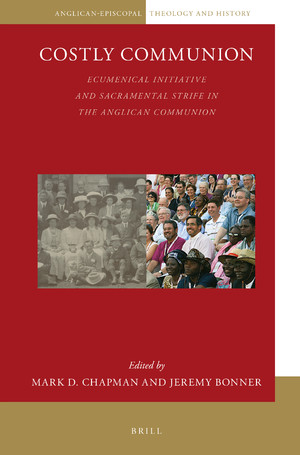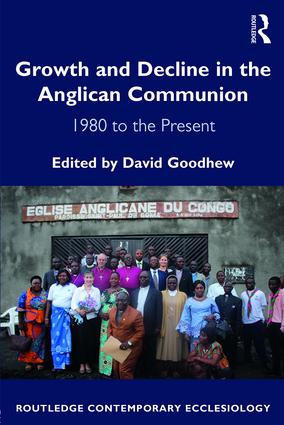Illinois Supreme Court denies TEC Petition
I have just learned that, with its denial of petition for certiorari, the Illinois Supreme Court has declared Diocese of Quincy vs. The Episcopal Church et al (2013) to be the law in the state of Illinois. A precedent for diocesan disaffiliation now exists in a state previously presumed to favor deference to the hierarchical argument. Interesting times!
Update: November 27
The following are revealing extracts from the Illinois Supreme Court ruling. The reference to the telling "concession" regarding the national church's lack of involvement in diocesan assets in ¶ 50 is revealing about how the courts adjudicate this sort of dispute. While at this remove I am a somewhat hazy as to what I actually said, my point in ¶ 54 was that the legislative history and the language of the Dennis Canon have nothing to say about dioceses. No one arguing the national church position has yet introduced testimony that the implications of the Dennis Canon for diocesan property were discussed at the time of its enactment (Walter Dennis died in 2003 and - apparently - left nothing to indicate what he - as drafter of the canon - intended). Given that most of Dr. Mullin's affidavits have been filled with references to canons mandating dioceses to do something, if dioceses were to be governed by the Dennis Canon surely it would have said so?
¶ 39 Contrary to the Church’s position, this is not a “documents only” case. In addition to reviewing numerous exhibits, the trial court heard an extensive amount of conflicting testimony and argument from the parties and made factual findings therefrom. Although determining whether to apply a deference or neutral-principles approach may, on its face, appear to be strictly a question of law, the court had to weigh the evidence presented in doing so. As the trier of fact, the trial judge was in a superior position to judge the credibility of the witnesses and determine the weight to be given to their testimony. Buckner v. Causey, 311 Ill. App. 3d 139, 144, 724 N.E.2d 95, 100 (1999). When contradictory testimony that could support conflicting conclusions is given at a bench trial, an appellate court will not disturb the trial court’s factual findings based on that testimony unless a contrary finding is clearly apparent. Buckner, 311 Ill. App. 3d at 144, 724 N.E.2d at 100.
¶ 50 The property in question in this case consists of the funds in the National City account and, although not emphasized by the Church on appeal, a deed to a piece of real property referred to by the Diocese as the “Diocesan House.” The deed has been included in the record on appeal. It is undisputed the Church is not a party to the deed. Instead, the deed reflects title to the property is held by the Trustees. The language of the deed does not provide for an express trust in favor of the Church. The “Discretionary Agency Agreement,” which is the contract between the Trustees and National City, is also contained in the record on appeal. Like the deed, it is undisputed the Church is not a party to that agreement. A review of the agreement does not indicate otherwise. It is also undisputed the Church has never had any involvement with the account, i.e., it never made any deposits or withdrawals, never authorized distributions, and never exercised any type of control over the account at all. In fact, in its brief on appeal before this court, the Church clearly states it “has never asserted that it owns those funds or any of the Diocese’s assets, but rather has consistently asserted that they belong in the hands of the Episcopalians who are the proper leaders of the Diocese.” This is no small concession.
¶ 51 The Church also fails to cite any relevant legal authority to support the removal and substitution of the diocesan corporations’ directors. Instead, it emphasizes the provisions of the Religious Corporation Act (805 ILCS 110/0.01 to 51 (West 2012)), which imposes certain requirements on the incorporating body with regard to trustee membership. See, e.g., 805 ILCS 110/46d (West 2012) (a trustee may be removed from office for, inter alia, abandonment of the denomination). However, it is undisputed the diocesan corporations were not organized under the Religious Corporation Act. Thus, its requirements have no application here.
¶ 52 Moreover, Dr. Mullin, the Church’s own witness, testified he knew of nothing to prevent a diocese from incorporating. Indeed, the Church does not argue the Diocese could not incorporate or was required to do so under the Religious Corporation Act. See 805 ILCS 110/35 (West 2012) (organizations formed for the purpose of religious worship may become incorporated under the Religious Corporation Act). In fact, religious organizations in Illinois may incorporate under either the Religious Corporation Act or the General Not For Profit Corporation Act of 1986 (Not-for-Profit Act) (805 ILCS 105/103.05(a)(8) (West 2012)). While the Not-for-Profit Act provides for the removal of corporate directors, the Church did not attempt any such removal under that act. See 805 ILCS 105/108.35 (West 2012); People ex rel. Muhammad v. Muhammad-Rahmah, 289 Ill. App. 3d 740, 742-43, 682 N.E.2d 336, 338 (1997). (In fairness, it likely lacked any authority or standing with which to do so as it is not a member of either the Trustees or Diocese of Quincy corporations.)
¶ 53 The trial court also found the evidence did not demonstrate the funds were held by National City in trust for the Church. The neutral-principles approach can involve examination of religious documents such as a church constitution for language of a trust in favor of the central church. Jones, 443 U.S. at 604; Maryland & Virginia Eldership of the Churches of God, 396 U.S. at 368 (Brennan, J., concurring, joined by Douglas and Marshall, JJ.). Under a neutral-principles analysis: “the outcome of a church property dispute is not foreordained. At any time before the dispute erupts, the parties can ensure, if they so desire, that the faction loyal to the hierarchical church will retain the church property. They can modify the deeds or the corporate charter to include a right of reversion or trust in favor of the general church. Alternatively, the constitution of the general church can be made to recite an express trust in favor of the denominational church. The burden involved in taking such steps will be minimal. And the civil courts will be bound to give effect to the result indicated by the parties, provided it is embodied in some legally cognizable form.” Jones, 443 U.S. at 606.
¶ 54 An examination of the evidence reveals nothing to demonstrate an express trust, an implied trust, or any other interest vested in the Church. As stated, neither the deed nor the Discretionary Agency Agreement provides for an express trust in favor of the Church. Further, our review of the Diocese’s constitution and canons does not suggest diocesan assets were ever impliedly held in trust for the Church. After Jones, the Church adopted a trust canon (Title I.7.4, referred to by the parties as the Dennis Canon). That canon provides parish property is held in trust for the Diocese and Church and restricts a parish’s ability to dispose of its property. However, it appears undisputed the Church’s canons do not contain similar language with respect to diocesan property being held in favor of the Church. In addition, Bonner testified the Dennis Canon does not apply to property owned by a diocese. Our review of the record reveals nothing to suggest the opposite conclusion. Accordingly, the trial court’s findings in this regard are not against the manifest weight of the evidence.
¶ 55 In sum, the evidence presented demonstrates title to the funds and real property lies with the Diocese. Following our review of the record, we cannot say the trial court’s findings were arbitrary, unreasonable, or not otherwise based on the evidence. Nor can we say the opposite conclusion is clearly apparent in this case. As a result, the court did not err in finding in favor of the Diocese. We commend the trial court for its detailed order, which we found quite helpful in reviewing this matter.









